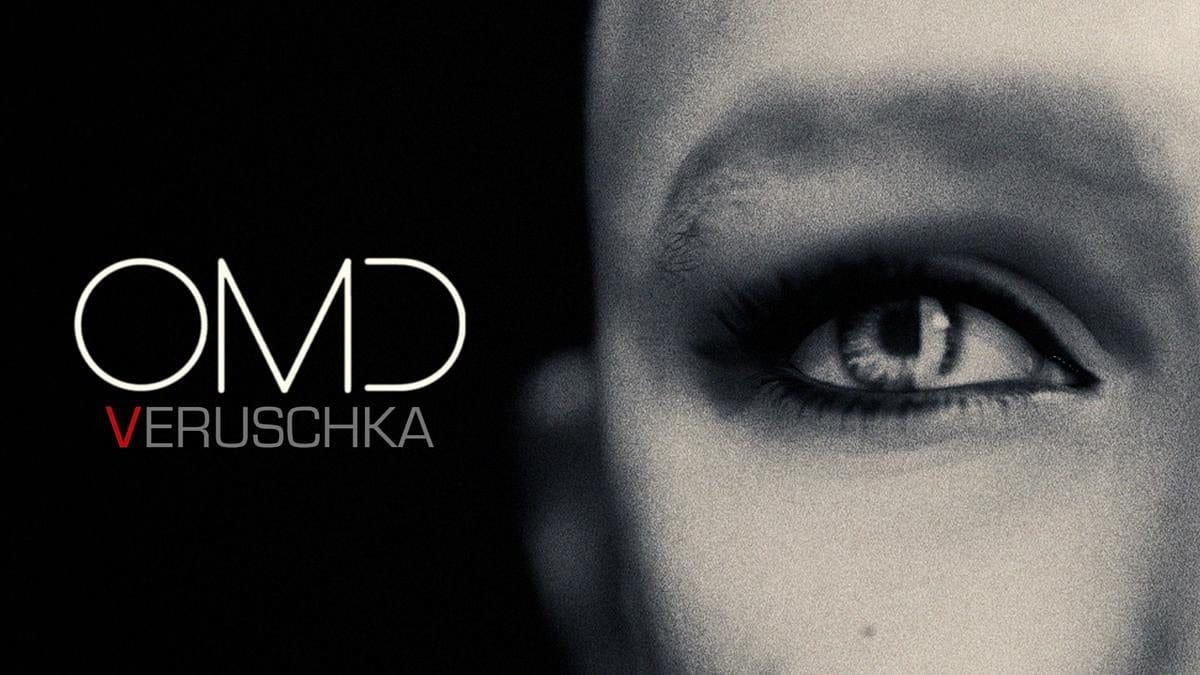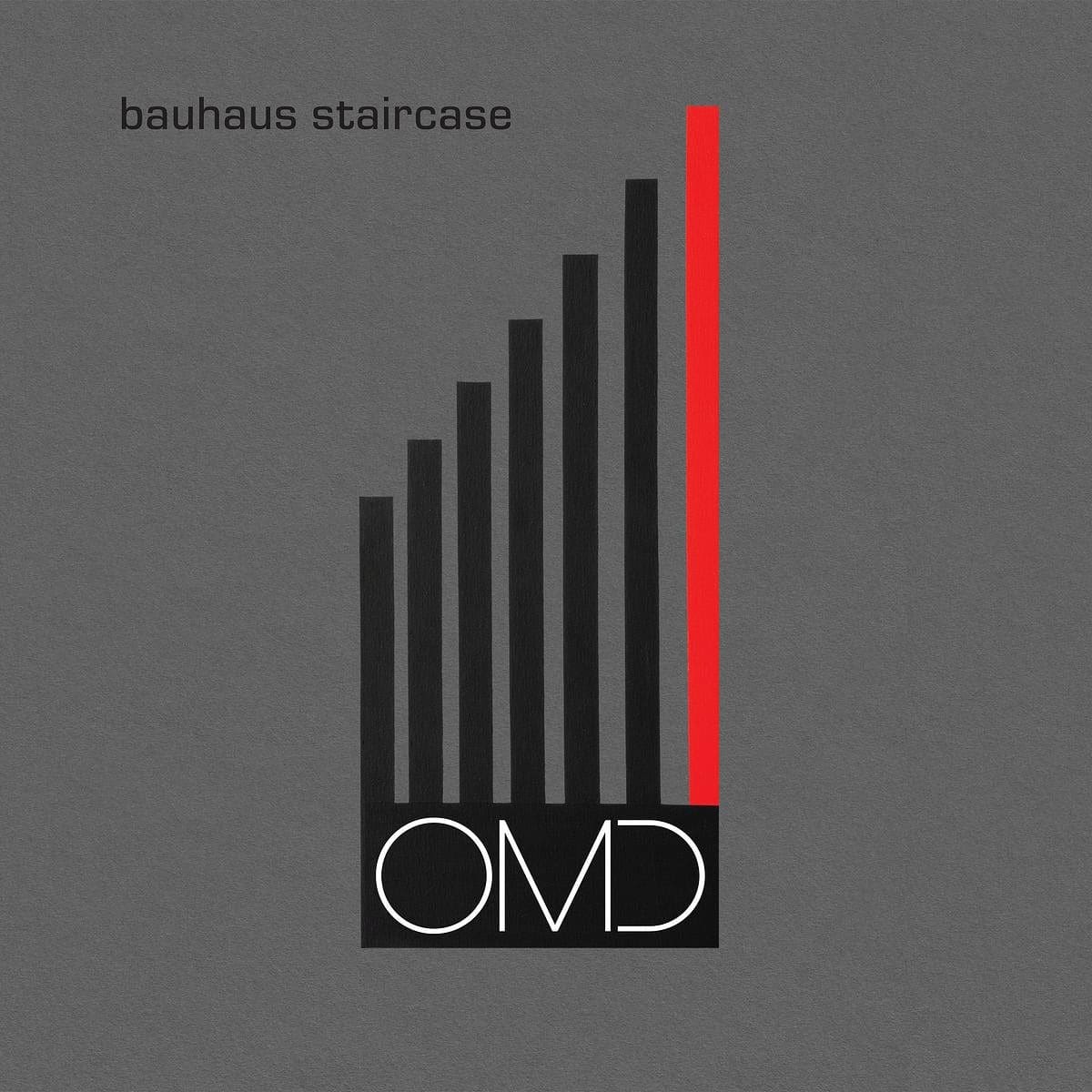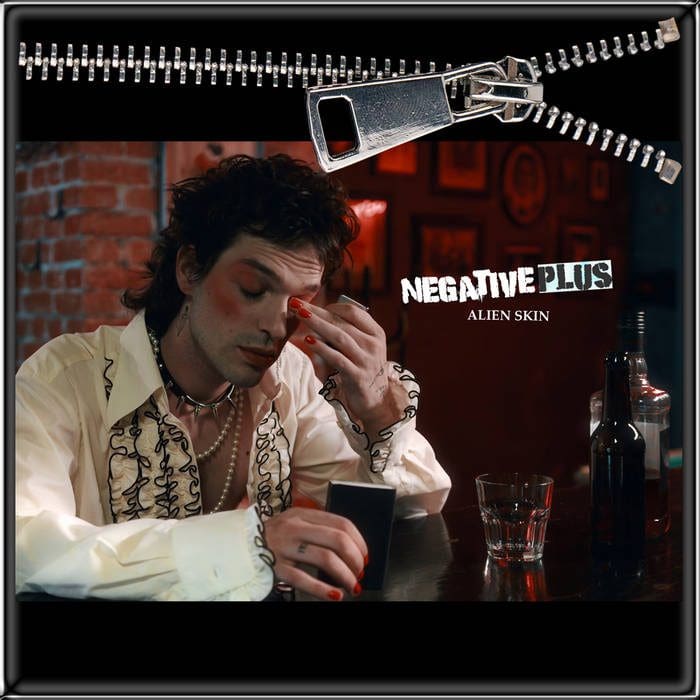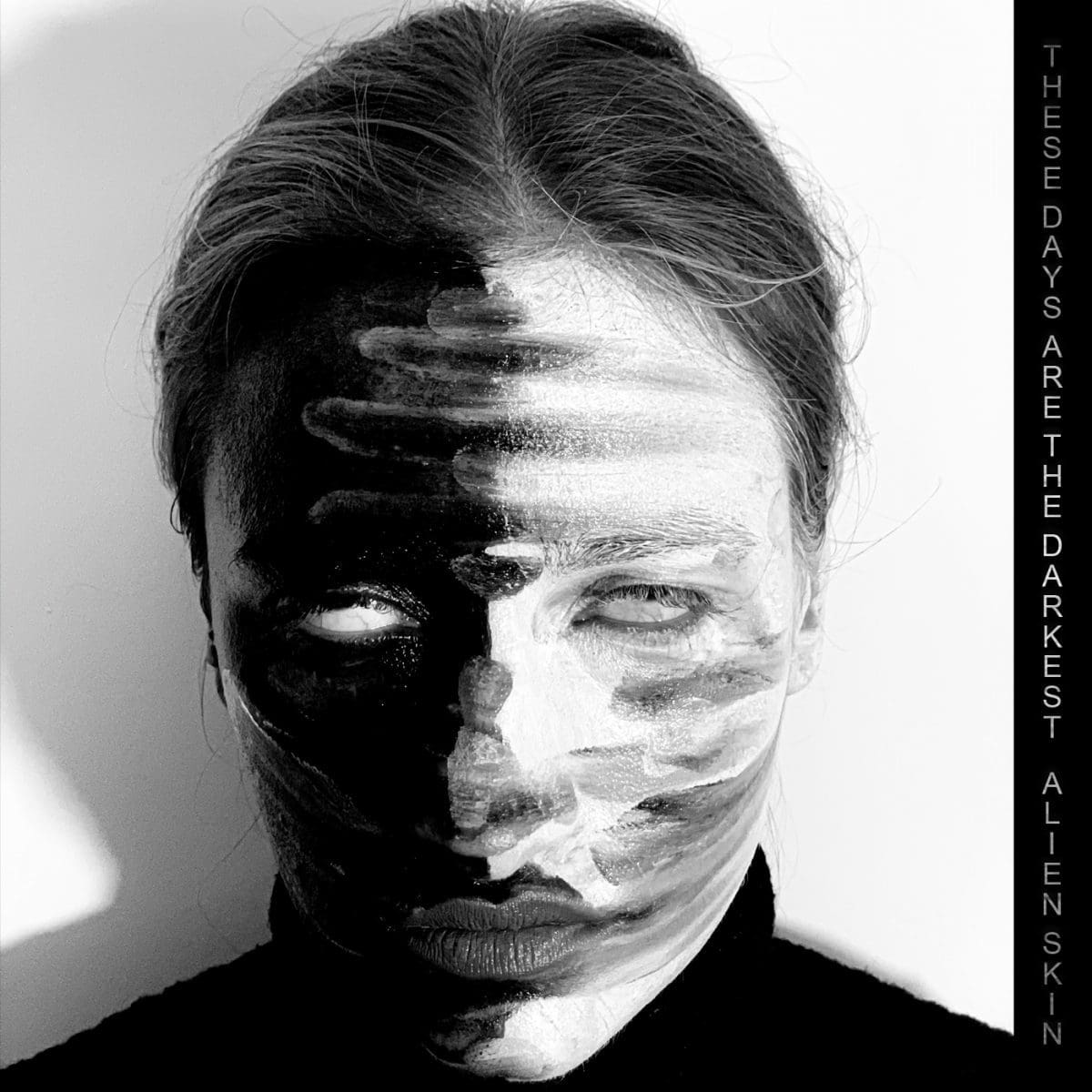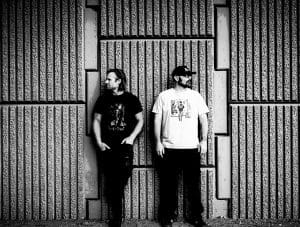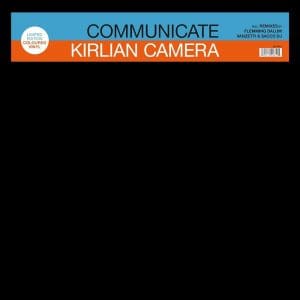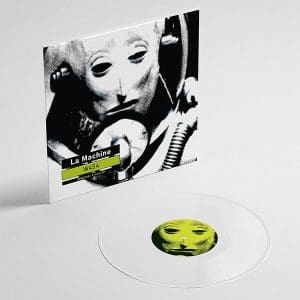‘Click Interview’ with Alien Skin: ‘With A Change Of Attitude Comes The Choice Of ‘Sound’ Itself’


Alien Skin is an Australian synth-pop project set up in 2008 by George Pappas. George has been involved with the legendary 80s formation Real Life, but is now working on his own. After having released three albums on the now defunct A Different Drum plus multiple self-released productions, Alien Skin signed to the Russian ScentAir Records to unleash a new full length. “P.O.P. POP” is without a shadow of a doubt the most atypical and visionary work ever accomplished by Alien Skin. It’s a modern piece of electro-pop. I talked about it with George Pappas.
(Courtesy by Inferno Sound Diaries)
Q: You’re always introduced as having been member of Real Life, which became famous for their legendary 80s hit “Send Me An Angel”. I think you were not involved during the early years of the band, but what has been your personal experience with this band and is Real Life still active today?
George: My time with Real Life began circa 1995 when I was brought in to do studio work on the song “Meltdown“ a key track on the 1997 album “Happy” and also did a handful of local gigs. Subsequent to this I permanently joined the band who had been hitherto dormant and away from the public eye for a number of years. I ended up co-writing half the “Happy”-album with singer David Sterry and programmed our entire set list for live performances. In 1998 we embarked on an extensive tour of the US, Germany and Australia to promote “Happy” and in 2000 were asked to perform at Synthstock2000 in Salt Lake City US with the likes of OMD and Berlin. In 2004 we released the follow up album “Imperfection” and once more toured the US in support. All in all I recorded 3 albums with Real Life before we called it a day in 2005.
David Sterry continues to tour internationally under the name of Real Life as part of various 80s review shows with other singers of the era. I must also add, as we all lived in Melbourne in the 80s, I knew of Real Life almost from day one, becoming an obsessed fan and catching the band at every gig around the city from 1982 till “Send Me An Angel” became the massive hit and took them to international stages for the next few years. I clearly remember when songs such as “Angel” were simply just live tracks performed in their set list during those early, extremely exciting, innovative, electronic, new wave days. Very fond memories; I was a fan well before I became a band member.
Q: I think you set up Alien Skin around 2007 and got rapidly signed to A Different Drum, releasing your debut album “Don’t Open Till Doomsday” in 2008. What did you try to express with this solo-project and can you compare the original sound and spirit of this debut work with your new album “P.O.P. Pop”?
George: In 2003 we (Real Life) signed with US label A Different Drum to release the album “Imperfection”. After we returned from our 2004 tour of the States in support of said album, and after nearly a decade co-writing with David Sterry I felt the urge, as you do, to write and release something outside the confines of the band. I think David and I were a complimentary team, and I always valued writing with him, but nonetheless I had untapped ideas that had no outlet, songs and moods that could never fit within a Real Life album. And so, returning to Melbourne I started writing songs for, as yet, an unnamed project. After completing a couple of demos I approached A Different Drum who agreed to release a full album upon completion. That album became “Don’t Open Till Doomsday” and one of the tracks was called “Alien Skin” and from the song title I adopted my moniker. MySpace at the time was a major asset in getting the album and the name known to a large number of people.
“Don’t Open Till Doomsday” is still an Alien Skin favorite for many fans. I can understand why, it has the brooding, melancholic, slow and medium tempo atmosphere ala Depeche Mode with Martin Gore-ish vocals. That’s where my head was at, at the time. It had a couple of key songs “Razor Arms” & “Saviour” which continue to be fan faves, so I have a lot to thank the album for. “P.O.P. POP” is a distant cousin, it obviously comes from the same source – me – so there will always be connections and associations in the music and sound but I view it as a totally different type of Alien Skin release – an exercise in being more rhythmically upbeat and strident. Nonetheless I believe it maintains the moody, dark colored melancholic spirit of my debut. I don’t do ‘happy’ very well:)
Q: After A Different Drum closed its doors, you self-released a few productions. What’s the importance of a label today and especially when we realize the CD format is progressively getting lost? How do you expect the music industry evolving and what does it mean to you as a musician?
George: A label – and here I speak generally of independent labels dealing with non-mainstream artists like myself -will always have more clout than an individual musician or band, especially within the music industry with promoters, magazines, reviewers, interviewers, retailers etc. Supporting and representing many artists, a label is a brand within itself in the market and if one has music released through a trusted label it demonstrates that someone else aside from yourself believes in your music and in you. I regard a supportive label as a confidence crutch providing a release with a sense of gravitas and for me there is also the value of knowing I am not laboring alone to promote my new work.
Yes I agree, the CD format is progressively getting lost and is now mostly for die-hard fans; all music sales across the board have been declining for years. But sales are not what I value most about being on a label. For instance “P.O.P. POP” was released via ScentAir Records exclusively as a CD through retailer POPoNAUT, Germany; it reached number 11 on their sales chart remaining in the top 15 for weeks. Now, although this does not imply great sales it nonetheless demonstrated to me a genuine level of fan support and the label played an important role in generating awareness of the album, far more than I could have achieved alone.
Anyhow, I can see the time, if not fully realized yet, when ownership of music, whether physical or purchased download, will become irrelevant in an absolute sense with no motivation to acquire it. Technology, convenience and the promotion and consolidation of social behavior through big money corporate marketing will continue to see the delivery and experience of music as an adjunct to telecommunication streaming plans and who knows what else in the further future. Live performance though will always remain a means to connect with people and is an area where a musician may earn more than via music sales. But this is mitigated due to many variables and only a minority make a decent living through touring. One cult band that continues to do this after nearly 40 years, and one I adore, is The Legendary Pink Dots. International gigging keeps them financially afloat.
As Alien Skin, working alone and outside the commercial mainstream all this has nominal effect on me. Making a living out of music sales in not something I rely on and gigging is not an option. Having said that, the lack of commercial prosperity does impact upon me as I cannot justify outlaying much money on any music project I undertake, even to the exclusion of some, on economic grounds.
Q: Over now to “P.O.P. Pop”! The title speaks for itself, but still some of the lyrics like “Aim With The Wrecking Ball” clearly refer to the impact of the 80s. Tell us a bit more about it all?
George: Well firstly “Aim With the Wrecking Ball’ has no straight narrative and it’s a mixture of thoughts that I realize can be interpreted in various ways, not necessarily as to what was in my head when I wrote it. It is certainly not my attempt to smash my music idols of the past, as has been suggested by some reviewers, quite the contrary. It’s an eclectic mix of political and social statement, not to put too pompous a tag on it mind you.
Most of my music heroes originate from the UK and Britain has had an enormous impact on world history which has been well documented for millennia. It fascinates me. The Victorian and post-Victorian era is one I’ve been interested in for quite some time and that’s how “Wrecking Ball” begins with my references to Victorian built industrial cities that were composed of masses of impoverished, poorly housed proletariat of the period. Eventually council estates took the place of slums but did not redress most of the social ills. The wrecking ball is a metaphor for the need of social, economic change.
Moving forward, name checking 1970s cultural icons (with Depeche Mode thrown in for good measure) is my way of focusing attention on the dystopian social culture of Britain in that era, a period of protracted economic struggle for working people; a social powder keg that lead to the ‘winter of discontent’ and the rise of the political right wing regime of Margaret Thatcher. If one has a listen to the lyrics you will hear I only aim the wrecking ball at Thatcher and the corporate financiers in the City with an allusion to the Sex Pistols (it ain’t pretty), nowhere else. And, as a follow through, the Thatcher regime was a political blueprint for Reagan in the 1980s, and here we go, my oblique segue to the 80s. Ironically, the 1980s is not an era I am particularly fond of with social & economic upheavals begun then that continue to influence and command us today.
The title track “P.O.P. POP” was inspired by an anecdote Noel Gallagher (Oasis) told of being at a British songwriters award night. When song of the year was announced 8 people stepped up to accept the said award. He was dumbfounded at how a single song can be authored by so many people so he walked up to their table and asked. One did the beats, one the chords, one the lyric, one the topline (melody) etc etc. I share his distaste for conveyer belt, generic, pop fodder.
“Devil In The Detail” was inspired by Nosferatu, “Me And You” by Dan Deacon (but very Bauhaus sounding) from the Francis Ford Coppola film “Twixt” which I saw last year. “Byron Said To Mary” is a particular favorite written after having read Mary Shelley’s “Frankenstein” and her eulogy for Byron in 1824. The song has an aggressive drum track coupled with that relentless bassline and sounds powerful with the volume cranked up.
Q: The album might be inspired by the 80s, but I experienced your new work as refreshing and even very visionary. This is not a stereotypical electro-pop work, but definitely an opus revealing minimal & intelligent sound treatments. What kind of work did you want to accomplish and what have been the main goals in sound creation?
George: Firstly, thank you so much for your kind praise of the album! I consciously aimed for a different Alien Skin album than what I had been doing to date, especially in attitude and with a change of attitude comes the choice of ‘sound’ itself. The transitional album was its predecessor “1980 REDUX” which again was a conscious decision to deviate and create an 80s themed release, albeit through my own particular prism and perspective. This, I believe, was a major change for me and returned me to my earlier electronic roots from the era of the late 70s into the early 80s.
I had a couple of left over tracks from “1980 REDUX” which were incomplete sketches “Aim With The Wrecking Ball” and “P.O.P. POP” were there musically, but very bare and unlike the finished album tracks and with no lyrics. I completed those two with spoken word in early 2018 and felt I stumbled upon an album ‘direction’ which I liked and I simply continued with more and more tracks with a similar vibe. Dominant, harder edged beats were important, faster tempos and rapid electronic synth sequences became intrinsic to each song and sound design.
Q: What does ‘pop’ music mean to you? How did you see this music genre evolving throughout the years and do you expect some changes/evolutions we maybe already can hear today?
George: My personal history, given my age, is a long one and I have been learning and absorbing music genres for 6 decades now. I was brought up on the crackling electricity of 1960s & 70s innovation that produced ever-lasting pop and rock that lives and inspires still. So, to me ‘pop’ is something precious, something that can be beautiful, meaningful, fun, exciting and ever so memorable. I love strong melody and clever application of ideas that may appear simple on the surface but with closer inspection, if you look for them, are damn genius at work sometimes. A clever, well written, well produced, memorable pop song is pure bliss to me.
I don’t hear anything of this in what goes under the umbrella of pop today nor have I been inspired by such for quite sometime. Depeche Mode with Martin’s brilliant songwriting flair in the 80s was perhaps the last time I was obsessed with pop, albeit their own very unique and dark sense of pop. The word applied nowadays makes me wince, and displays little connection to my own idea of pop and what it once related and referred to. Hence I have no idea how it will pan out in the future, how it may evolve, and much of what is new today continues to be rooted in one way or another in the past, for big industry supported commercial pop music anyhow.
Since you’re here …
… we have a small favour to ask. More people are reading Side-Line Magazine than ever but advertising revenues across the media are falling fast. Unlike many news organisations, we haven’t put up a paywall – we want to keep our journalism as open as we can - and we refuse to add annoying advertising. So you can see why we need to ask for your help.
Side-Line’s independent journalism takes a lot of time, money and hard work to produce. But we do it because we want to push the artists we like and who are equally fighting to survive.
If everyone who reads our reporting, who likes it, helps fund it, our future would be much more secure. For as little as 5 US$, you can support Side-Line Magazine – and it only takes a minute. Thank you.
The donations are safely powered by Paypal.


